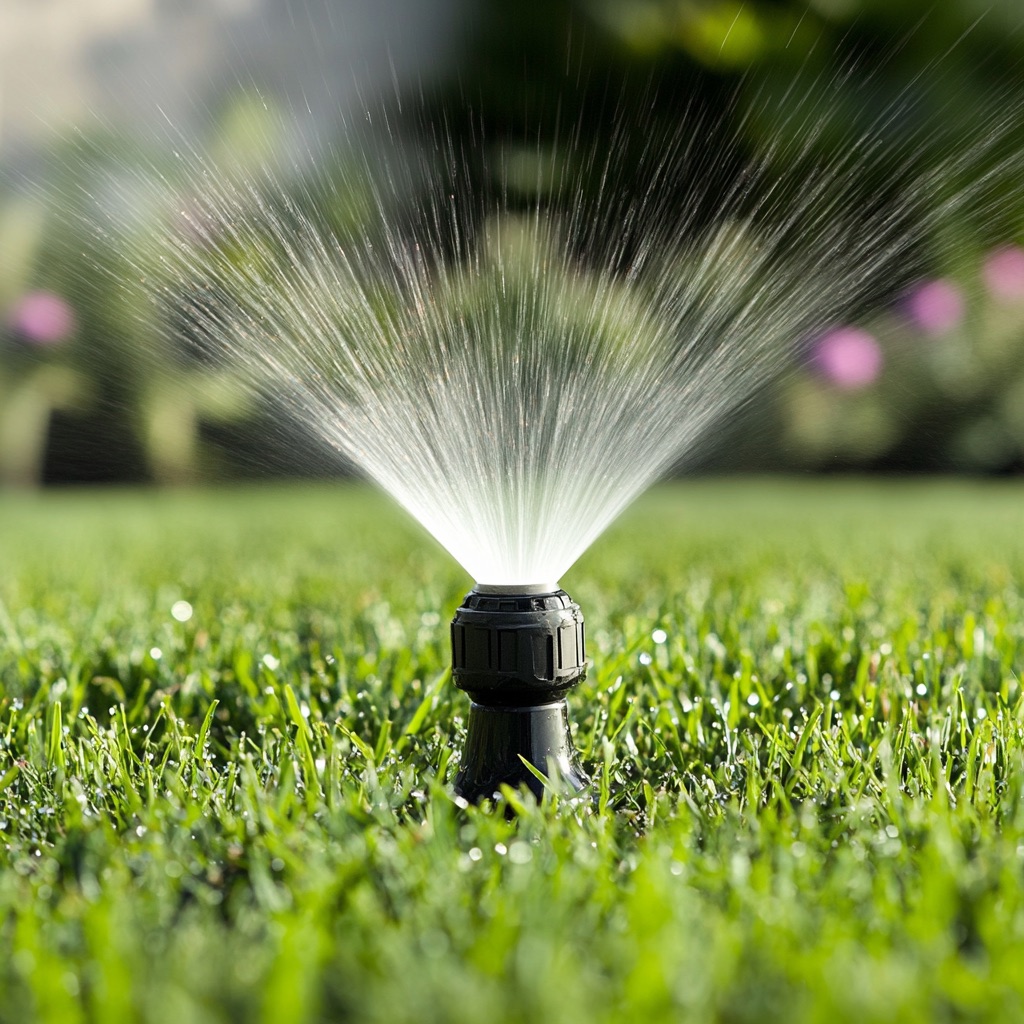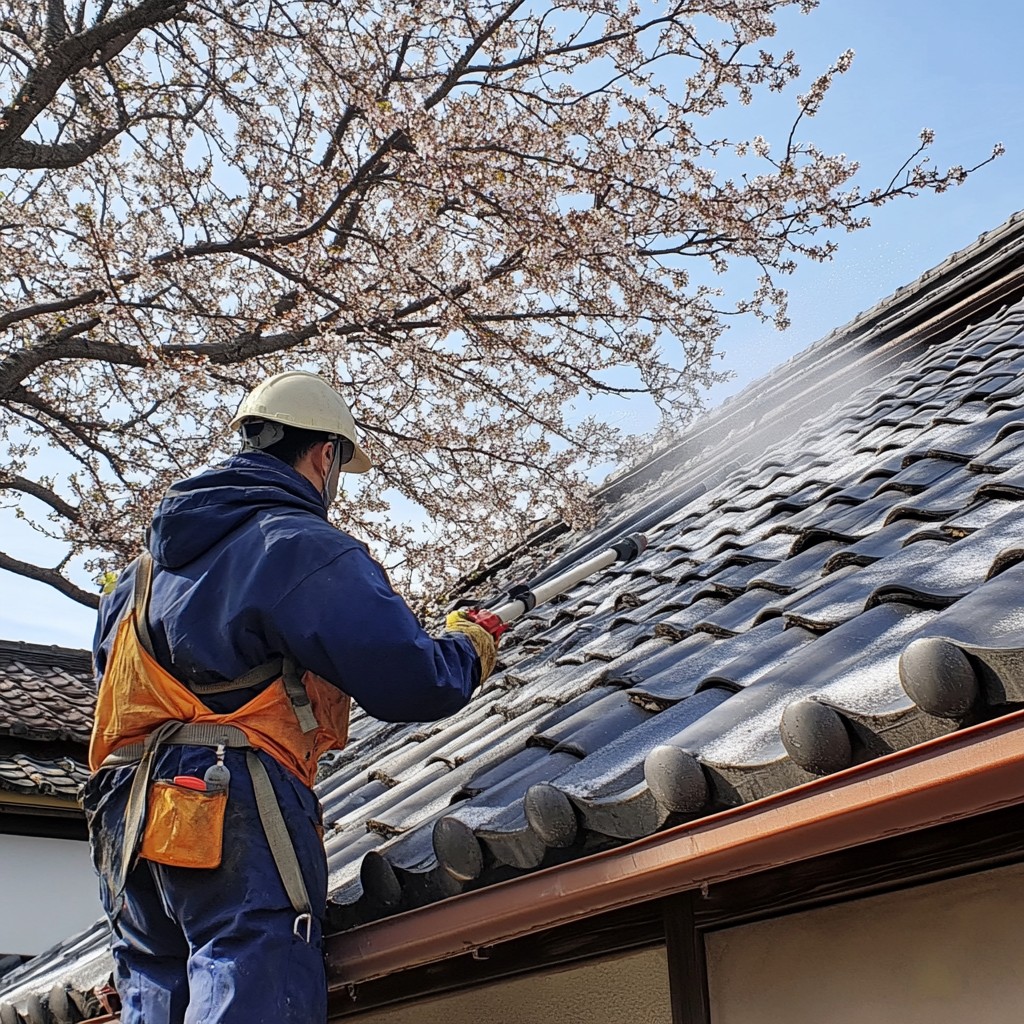Last updated on
Is it worth choosing reusable ice cubes? Are they a sustainable alternative to traditional ice? We check the facts in this article. Read on!
There’s a common misconception about traditional ice cubes that needs clearing up. And that is that germs can’t live on ice without dying.
While this might be true with some germs, it’s not the case for all of them. They might not be able to multiply, but that doesn’t mean they won’t get a free ride on ice cubes.
Bacteria like salmonella can survive freezing temperatures and is more than happy to jump on ice cubes to get to a host.
And it’s not just the ice from your freezer you have to worry about; it’s the ice machine at restaurants too.
Here’s the thing:
For ice machines to remain safe, they need regular cleaning, which a lot of restaurants don’t stick to. This can lead to a build-up of harmful bacteria like:
- Hepatitis A
- Salmonella
- Norovirus
- E.Coli
- And many more
Any of the bacteria above can cause potential life-changing problems if they infect someone.
Freezers and ice machines need to be cleaned regularly, which takes time, effort, and money. If they don’t get cleaned regularly, they can cause serious health issues.
If you’re looking for the best way to keep your drinks cool and safe from bacteria, keep on reading!
What Are Reusable Ice Cubes?
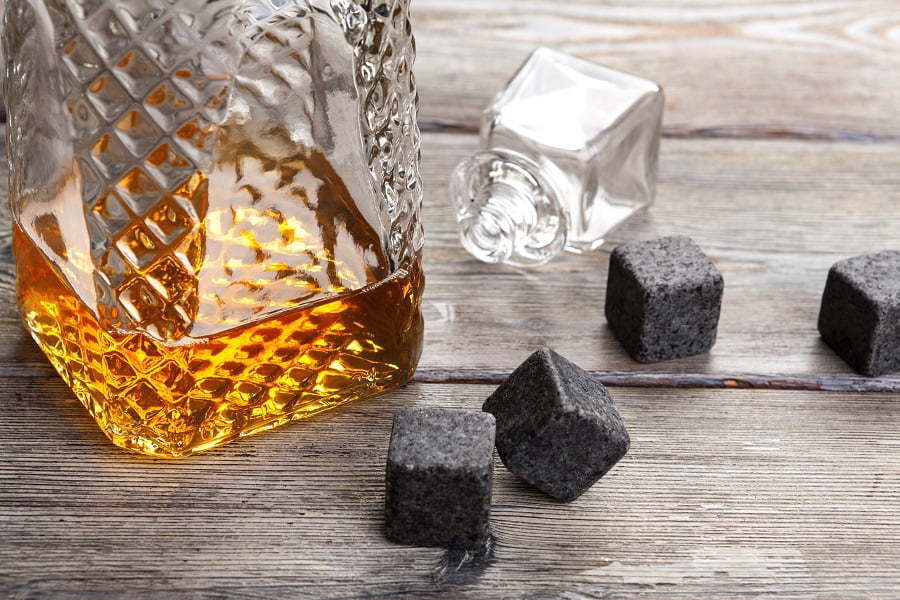
Reusable ice cubes are a great way of reducing the number of bacteria you consume with traditional ice cubes.
Because they can be washed easily, it makes them a healthier version, but best of all, they keep your drink just as cold.
They work just like regular ice cubes, except they can be cleaned and refrozen at any time.
Reusable ice cubes reduce the risk of making people ill, but they also have a few more benefits. One of the most considerable benefits is they don’t dilute your drink in the same way traditional cubes do.
Another benefit is they save money; running ice machines use electricity and water. Reusable ice cubes can significantly reduce this cost.
Reusable ice cubes are available in a few different materials, and each material has its pros and cons. Let’s take a look at them:
Stainless Steel – It’s considered to be the safest version of reusable ice cubes. The material is food grade, so it doesn’t change the taste, and they’re super easy to clean. Stainless steel ice cubes stay cold for a long time, but they need to be handled with care in glasses.
Stone – When it comes to holding a low temperature, stone ice cubes aren’t as effective. The cubes are usually made with soapstone and are commonly used by whiskey drinkers because they don’t dilute or change the taste.
Silicone – The significant benefit of these reusable ice cubes is they have a lower freezing temperature than water. This feature means the ice cube will keep your drink cooler for longer. The downside is if the gel leaks, it will turn the drink toxic.
Which one is best? That usually comes down to personal preference. As a rule of thumb, stainless steel tends to be the best but comes with a higher cost.
Silicone ice cubes are super cheap and usually come with plenty in the pack. The downside is the toxicity, which, although low, can still cause damage if ingested.
If you’re a whiskey drinker, you’d probably go for stone; they don’t drop the temperature too much or dilute it.
Are Reusable Ice Cubes Safe to Use?
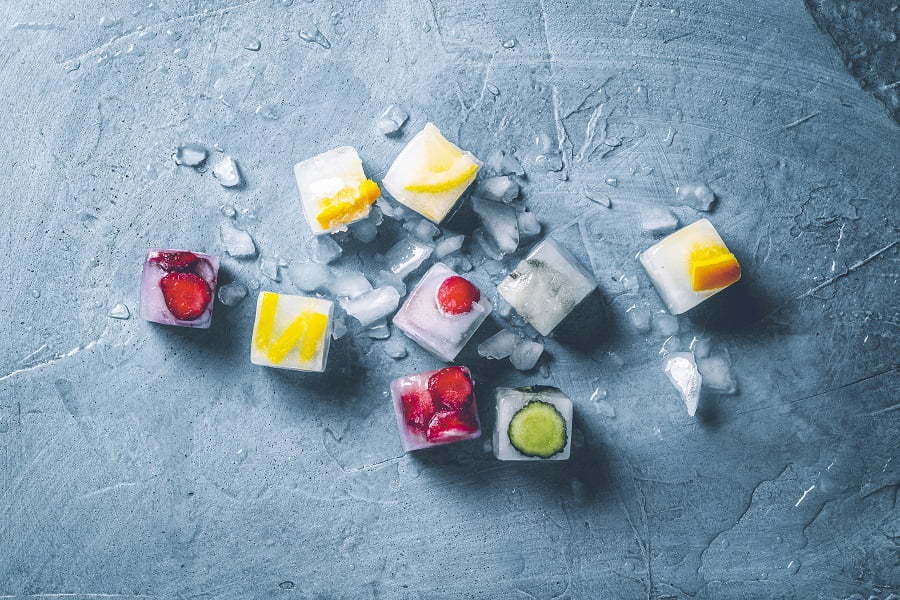
In general, reusable ice cubes are perfectly safe and won’t cause any long-term health issues. But caution needs to be taken with silicone/plastic ice cubes for a few reasons:
The first issue is the silica gel inside the ice cubes; if it leaks out of the cube, it has the potential to make the drink toxic.
Silica gel may have a low toxicity level, but that doesn’t mean it can’t cause problems. If you ingest the silica gel, it could damage your vital organs.
The second issue is with silicone/plastic materials. Over time the materials start to weaken and leach into your drink.
Even BPA-free products can still leach into your beverage, causing all kinds of health problems.
Not only that, but they can considerably change the taste of your beverage.
For the reasons above, more people are turning to the stainless steel ice cube. It’s the best way of avoiding harmful chemicals.
How Long Can They Last?
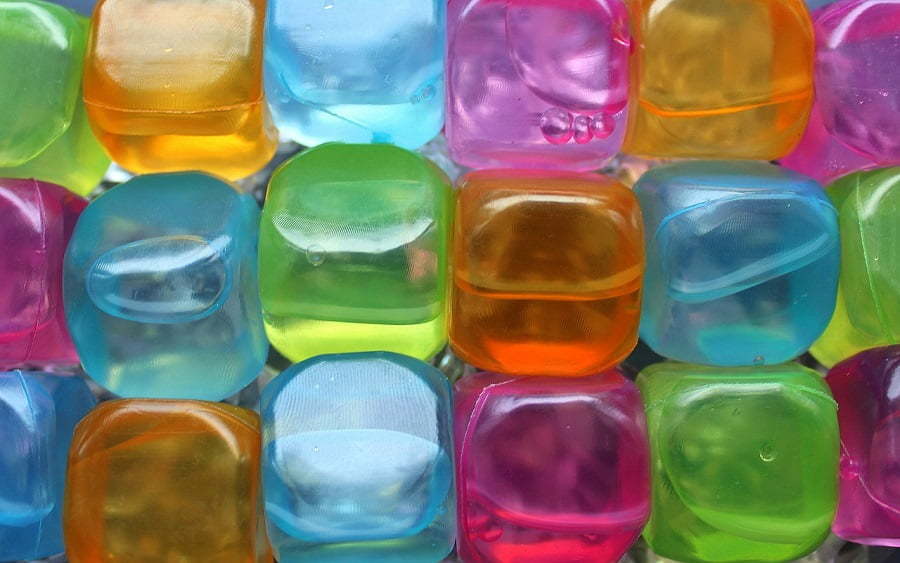
Ok, the answer to this question can vary between the style of reusable ice cube you pick. But it largely depends on the drink’s temperature and the outside temperature.
Let’s break it down:
Stainless Steel
A stainless steel ice cube will last on average 30 minutes before it needs replacing, which is longer than any other style.
But they also take the longest to freeze and are slightly more expensive. That being said, the ice cubes will last a lifetime if correctly maintained, making them great for a sustainable home.
Silicone/Plastic
Silicone only lasts about 15-20 minutes before they need replacing, which is less than stainless steel. But they freeze a lot quicker than the other styles.
And because they are easy to produce, it makes them a lot cheaper. The problem is they won’t last as long, and they are super bad for your health. If the silica gel leaks into the drink, it could result in a trip to the hospital.
Stone
Stone tends to be the worst at cooling than the others, but that’s because they’re generally used to drop whiskey down to room temperature.
On average, they will keep it cool for around 15 minutes but keeps it at room temperature for longer. Overall they can last as long as steel but need to be maintained and can break if dropped.
Round-Up
To finish the article off, it’s vital to remember traditional ice cubes can be extremely harmful if everything isn’t correctly maintained.
But this takes a lot of time and money, which makes reusable ice cubes a step in the right direction. Eco-friendly ice cubes can significantly reduce the risk of picking up foreign bacteria.
Stainless steel tends to be the best option; the food-grade material means it doesn’t damage your health or change the drink’s taste.
More importantly, they can stay colder for longer and never need replacing if they’re looked after correctly.
It’s best to stay away from the silicone ice cubes; the risk of toxins leaking is always a concern. But if you have a tight budget, it’s easy to see their appeal.
Table of Contents
